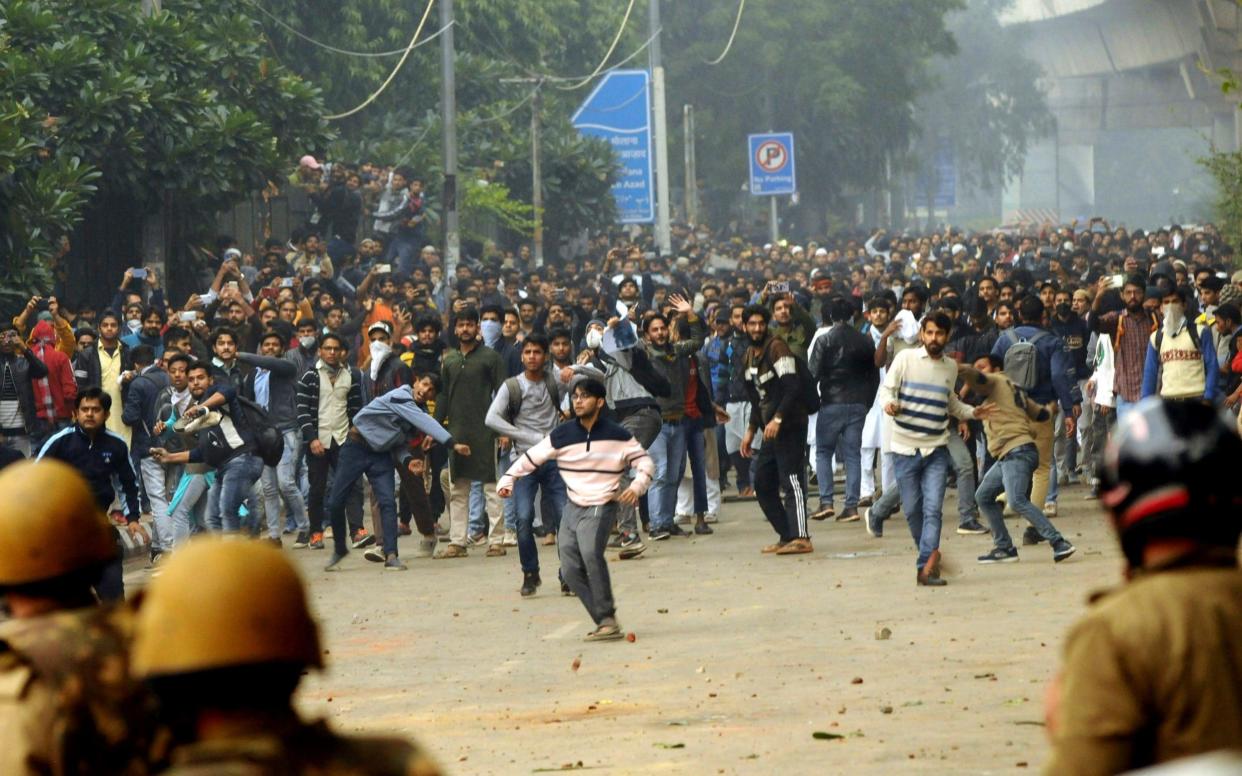Shinzo Abe cancels Japan-India summit amid citizenship bill violence

Japan's prime minister cancelled a planned summit in India after a second day of violent unrest over the enactment of a controversial new citizenship law.
Clashes erupted between police and students in Delhi, a day after two people were shot dead in widespread protests in the north eastern state of Assam.
Narendra Modi's government has said its Citizenship Amendment Bill, making it easier for non-Muslim minorities from neighbouring countries to gain India citizenship, will protect those persecuted from Bangladesh, Pakistan and Afghanistan.
But thousands protested in Assam fearing it would encourage a wave of migrants from neighbouring Bangladesh. Elsewhere, the amendment has been criticised for undermining India's secular constitution, and pushing Mr Modi's Hindu first agenda, by not offering protection to Muslims.
Two died in the Assam clashes when police fired on mobs torching buildings and attacking railway stations in protest.
Shinzo Abe cancelled a trip to Assam scheduled for Sunday to highlight Japan's aid and development work in the state.
“Both sides have decided to defer the visit to a mutually convenient date in the near future," Indian foreign ministry spokesman Raveesh Kumar said.
Meanwhile police fired tear gas to disperse students demonstrating at Delhi's Jamia Millia Islamia university. Protesters attacked cars in the capital, and several people were injured and taken to hospital.
Zakir Riyaz, a PhD student in social work, said the new law made a mockery of India's religious openness.
He told Reuters: "It goes against the whole idea of a secular India.”
Police barricades were knocked down in the clashes and streets were strewn with shoes and broken bricks. An official at the university dispensary said that more than 100 students had been brought in with injuries but all had been discharged.
The United Nations human rights office voiced concern that the new law is "fundamentally discriminatory in nature", and called for it to be reviewed.
Opposition parliamentarians have threatened to challenge the new law in court.

 Yahoo News
Yahoo News 
